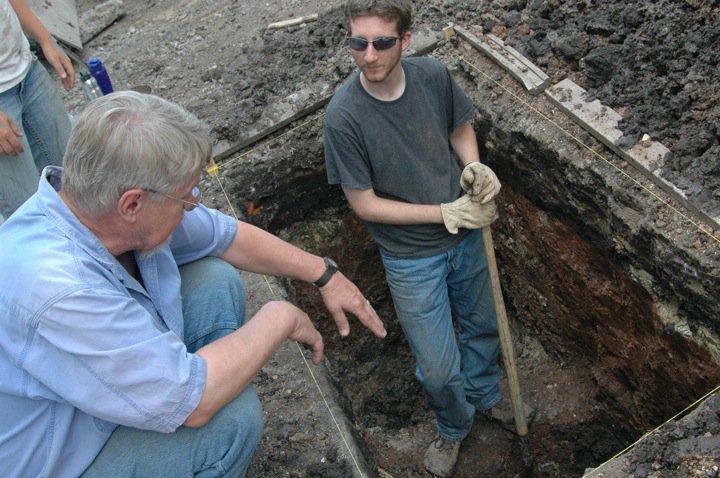
The University of Nebraska State Museum will present a Sunday with a Scientist program for children and families about anthropology and archaeology 1:30-4:30 p.m. Sept. 19 at Morrill Hall.
Archaeologists study the material remains left by humans to understand ancient cultures. Archaeology is a branch of anthropology, the wider study of past human civilizations.
The program, "Digging into Anthropology," will be led by faculty from the Department of Anthropology. The presenters will help visitors of all ages better understand human origins, cultures, and the various methods anthropologists use to unlock the mysteries of our past. There will be an archaeological test dig outside the museum.
Museum hours Sunday are 1:30-4:30 p.m.
Presenters from the UNL Department of Anthropology include:
- Peter Bleed, Ph.D., professor of Anthropology
- Martha McCollough, Ph.D., associate professor of Anthropology
- LuAnn Wandsnider, Ph.D., associate professor of Anthropology
- Shimelis Beyene, Ph.D., Anthropology lecturer
Visitors will discover how soil is interpreted by archeologists. Digging is the major technique archaeologists use to recover information about ancient people. An important part of archeological excavation is knowing how to observe and interpret the soils that contain ancient artifacts. Archaeologists call this "reading the dirt." With the help of the UNL Landscape Services, professor Bleed will excavate a small trench outside Morrill Hall. Visitors can watch as he cleans the walls, documents the layers and surfaces, and demonstrates how archeologists use this information to describe events in the past.
Cultural and physical anthropology will also be explored. McCollough will have replicas of human skulls on hand to demonstrate the evolution of humans, from when humans first became bipedal to modern day. Early tools, such as pebble tools and hand axes, will be on display to show the transformation in technology over the millennia. Beyen will discuss the study of primates, and how their movements and social behavior provide clues about human origins. A variety of primate skeletons will be available for viewing, along with slide show images.
Sunday with a Scientist is a series of presentations that highlight the work of museum scientists and those from other UNL departments and institutions, while educating children and families on a variety of topics related to science and natural history. Presenters will share scientific information in a fun and informal way through talks, demonstrations, activities or by conducting their science on site. Sunday with a Scientist programs are 1:30 to 4:30 p.m. at Morrill Hall on the third Sunday of each month.
Upcoming Sunday with a Scientist Topics: Oct. 17 - Native Americans; Nov. 21 - ancient people; Dec. 19 - Nebraska amphibians.
For updates on the Sunday with a Scientist schedule or for more information on the museum, go to http://www.museum.unl.edu.
- Dana Ludvik, NU State Museum
More details at: http://go.unl.edu/80i